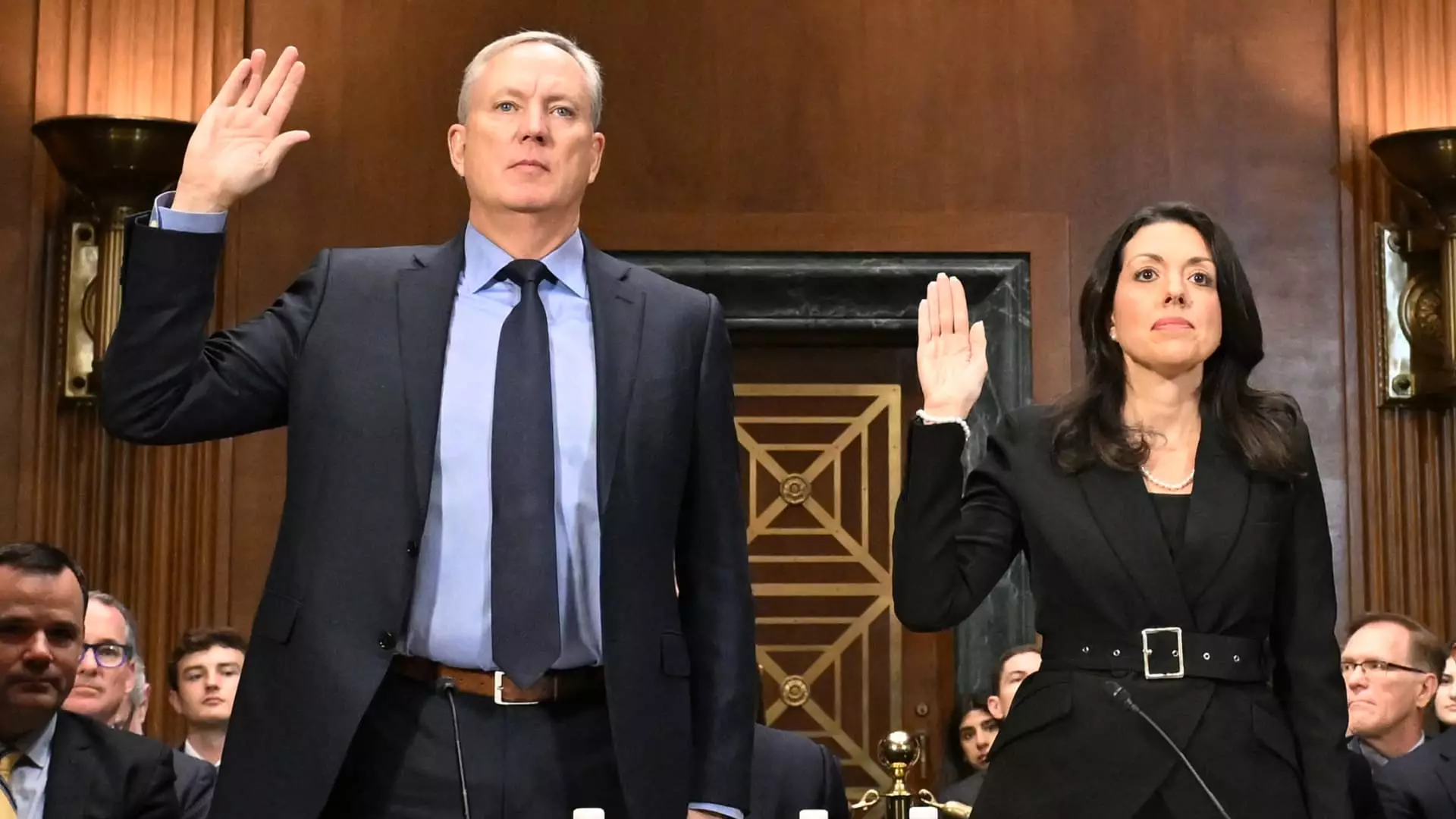In an evolving landscape of payment processing, the role of major credit card companies, especially Visa and Mastercard, has come under intense scrutiny. A recent hearing held by the Senate Judiciary Committee highlighted a growing frustration among lawmakers—ranging from the conservative to the progressive factions—about the alleged “duopoly” of these two giants. With a commanding market share of approximately 80% and a combined market capitalization exceeding $1 trillion, Visa and Mastercard’s influence has left many retailers, particularly small businesses, feeling powerless in negotiations regarding interchange fees. As merchants are compelled to pay these fees—often ranking as their second highest operational cost—calls for reform have intensified.
During the recent hearing, committee chair Senator Dick Durbin from Illinois presented a strong case for change. He pointed out that in 2023 alone, Visa and Mastercard charged businesses over $100 billion in fees, primarily through interchange costs. To address this imbalance, Durbin and fellow senator Roger Marshall from Kansas have introduced the bipartisan Credit Card Competition Act. This proposed legislation mandates that banks with substantial assets must offer at least one alternative payment network alongside Visa and Mastercard.
The essence of this act lies in its potential to level the playing field for small businesses, granting them the power to choose between retaining the existing trends or opting for a more cost-effective transaction model. This regulatory move seeks not only to ensure financial relief for merchants but also to enhance competition within a market currently dominated by a few players.
However, representatives from Visa and Mastercard have voiced strong opposition to the Credit Card Competition Act, emphasizing potential negative ramifications for consumers. Bill Sheedy, a senior advisor at Visa, warned that the act would undermine consumer autonomy, disrupt competition, and potentially favor specific players in the market. Their rhetoric suggests an overarching concern that regulatory measures could inadvertently stifle innovation and lead to higher costs, as was seen in the aftermath of the Durbin amendment to the 2010 Dodd-Frank Act, which resulted in unintended consequences such as increased fees and diminished competition in the debit card sector.
This perspective raises an essential debate regarding the balance between regulation and free-market principles. Visa and Mastercard argue that the existing interchange fees are vital to maintaining the security and reliability of transactions. They further assert that the costs associated with fraud prevention and customer service are embedded in these fees, fundamentally making them essential to the payment processing ecosystem.
The implications of credit card swipe fees extend beyond the business realm and directly influence consumer expenses. According to the National Retail Federation, the burdensome fees translate into inflated prices for shoppers. Interestingly, an evaluation by legal expert Roger Alford from Notre Dame reveals that the average American spent over $1,100 on swipe fees in the previous year—a figure that overshadows everyday expenses on pets, coffee, or even alcohol.
When consumers consider their overall spending habits, credit card fees typically do not take center stage. Yet, their far-reaching impact is evident, knit into the fabric of prices across industries. The cry for fairness and transparency in the payment system resonates with both retailers and consumers alike. Strikingly, the proposed legislation aims to ensure that the payment landscape is equitable, reducing the financial strain on American businesses and, ultimately, their customers.
Despite a recent settlement in which Visa and Mastercard agreed to reduce their swipe fees by four basis points over three years—a settlement that was later rejected by a federal judge—the conversation regarding their monopoly and its impacts is far from over. This case has ignited a larger discourse on economic fairness and the regulatory responsibilities of governing agencies in overseeing powerful corporates and addressing monopolistic practices.
The ongoing lawsuit against Visa by the Justice Department further complicates the narrative, suggesting that aggressive enforcement against monopolistic tendencies may pave the way for substantial changes in how payment networks operate. Attorney General Merrick Garland’s declaration that Visa’s actions may have impacted “the price of nearly everything” signals a potential shift towards greater accountability in an industry often characterized by opaque operations and unilateral fee policies.
As the Senate Judiciary Committee continues to grapple with the intricate dynamics of the credit card market, the need for comprehensive reform surrounding interchange fees remains critical. The journey towards a more equitable payment system is fraught with challenges, but the collective call for action reflects a burgeoning consensus among lawmakers, businesses, and consumers. The outcome could redefine not only the future of credit card processing but also the financial landscape that shapes everyday transactions across the country.

